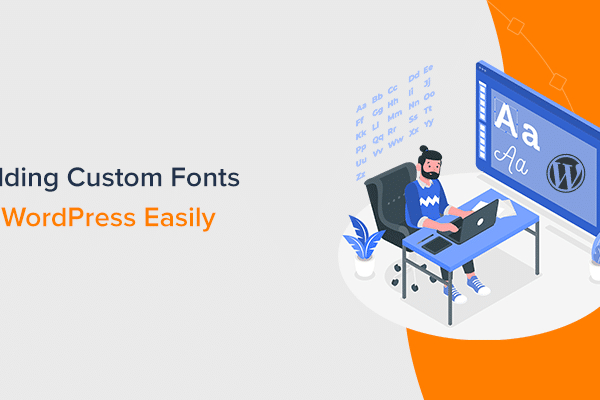Welcome to Press This, the WordPress community podcast from WMR. Here host David Vogelpohl sits down with guests from around the community to talk about the biggest issues facing WordPress developers. The following is a transcription of the original recording.
David Vogelpohl: Hello everyone and welcome to Press This the WordPress community podcasts on WMR. This is your host, David Vogelpohl, I support the WordPress community through my role at WP Engine, and I love to bring the best of the community to you hear every week on press this as a reminder, you can find me on Twitter @wpdavidv, or you can subscribe to press this on iTunes, iHeartRadio, Spotify, or download the latest episodes at wmr.fm. In this episode I’m really excited for this one we’re going to talk about adding artificial intelligence that’s right it’s the future, we’re going to add, learn how to add AI superpowers to WordPress, and joining us for that conversation is someone very familiar with this, I’d like to welcome from angry creative Mr David Lockie. David welcome back to Press This.
David Lockie: Thanks, good to be back be back.
DV: Yeah, you’re like, you’re like my future topic guests you’ve actually been on the show before and what did you talk about last time remind everybody
DL: probably blockchain that’s like my other tech token, darling. Crypto blockchain so probably wax lyrical about that, and I think there was, didn’t we do that at a word camp, I remember it being pretty hot, was that Berlin,
DV: could have been very around that I know you know I did another episode with Sebastian. When you know he got that round, where he won that competition there. I think yours was shortly before that so I’m sure it was probably connected to word camp EU in Berlin. You know where it can’t be used coming up next week or this week should I say on our broadcast date. Crazy, isn’t that quickly. I really looking forward to that if you’re out where it can’t be you. Keep an eye out for me I’ll be giving an interview about why contributing to WordPress is important to WP Engine. If you’re going to work in the UK for a day, see you there virtually, and David hopefully you’ll be around but for this episode what we’re really talking about is, you know, the use of artificial intelligence with WordPress, like why does it matter how could you use it, how does, what are the principles of AI look like and how might that inform your strategy. These are kind of the things you want to talk about here with with David today. I think the other context is like well why does any of this matter like what is the material outcome like AI is cool I guess like does it actually have a material impact to the WordPress sites that you build and optimize. So David, I’m going to kick off and I knew I asked you this in your last episode and I’m going to go out on a limb and say every listener here didn’t catch that one. But why don’t you briefly tell me a little bit about your WordPress origin story. How did you get started with WordPress.
DL: Sure. So I was working with some friends on kind of clean energy tech, and we’re building a marketplace to help that marketplace connect people and their platform was built in SP, I learned some HTML and CSS along the way, and eventually realized that enough to put together a website, which I did a few times. In fact enough times to get frustrated by not having a templated approach. So I looked for a way to template, websites, and WordPress was the only thing I could get running on my Windows laptop at the time, through logical brute force software engineering. After that I was basically up and running with some sites for friends and family started freelancing full time doing WordPress freelancing started pragmatic as an agency, a few years after that got super busy campaigning really busy. And then, last summer, sold the business to angry creative sites back in July. So I’m now, cmo with anger, creative, based out of Sweden, primarily,
DV: or congrats on that acquisition I know it’s a labor of love to build and grow an agency and when did you first like Do you remember the year roughly you first started using WordPress. Oh yeah for sure it was 2007, because he 1007 So right after short widgets and shortcuts were introduced, or before right in that timeframe, which would have been an exciting time to be in WordPress.
DL: I remember like custom post types being an amazing new thing.
DV: 2010 really kind of transformative moment i i think of that moment is when WordPress really became a CMS is the CPT moment. Back in 2010 a lot of things came into existence right after that WP engine the company I work for WooCommerce game right after that a lot of things actually came as a fastball to CPTs. So we have these moments of course in WordPress. Where there’s these, this, this kind of change, people start using technology different I think AI is, is, you know, perhaps one of those things, at least in terms of augmenting WordPress, real quickly, could you tell me about angry creative though like the work you’re doing now.
DL: Yeah, sure. So, out of a lot of things I think we do did writer, pragmatic, something that either created or done better, is focusing on WooCommerce and productizing your own app so there are a specialist WooCommerce WordPress agency, otherwise very similar to what pragmatic was. So, based in Europe and Africa now. And our missions, basically all about WooCommerce. That’s world class. We have a product called color, which takes many of the sort of classic WooCommerce, open source software pain points, things like cost versus quality, and choose the right plugins and modules to unsafe maintenance payments way, make it feel a little more like assess and to that sort of pain free experience we add some specific features, especially around, internet, internationalization. So for folks starting to butter up against, for example, the UK business selling EU or vice versa, where you need to have different tax shipping payment options, all that kind of stuff. WooCommerce and that sort of takes on a new level of complexity and let’s really work harder and we’ve done that a lot. And I guess a lot of agencies have done it a few times, but it’s what we do. We’re really focusing in on that on that issue.
DV: I love it as our CEO Heather Bruner often says where there’s focus there’s progress and it’s really interesting to hear about the focus there and angry creative as also as I heard you talk about the E commerce and WooCommerce focus I started imagining all these use cases, perhaps for AI and the E commerce sense that, you know I’ve either used you’re seeing kind of out in the wild, so I could see why that focus would lend itself to AI based strategies. Now, to kind of orient folks like the term AI gets thrown around a lot, right. So in simple terms, how do you define the principles of artificial intelligence or machine learning,
DL: you Yeah, it’s, it is used and abused a lot. And I think, like, there are a few things that come to mind. So, when I think about AI. I try to remind myself that it’s not just another tech, you know, it’s not like 5g or crypto like AI is sort of, it’s truly a whole other type of technology. I don’t think anything has same potential to disrupt and change the world around us. We can’t really imagine, like, more intelligence and we have, it’s sort of like one of those natural limits of the human brain. But if we can build something that’s smarter than us.
DV: But how is it smarter and like what are the principles of building like what goes into it, like what’s the, what does it. What does the material out like print from from the high level principle perspective like, what are the kinds of jobs that it can do.
DL: So, first of all, it’s important to know that AI is really a family or a suite of technologies, not any single one, so you’ve got everything from generative adversarial networks, which can produce images, right through to machine learning, which is more sort of data science and building models really the way to think about AI as a sort of as a suite is that it’s the ability for, like, something non natural so like software to acquire and apply knowledge and skills. So, for example with machine learning, rather than it being about giving inputs, and the program, applying computation and getting the answer. It’s about giving the inputs and desired results, and creating a model from, from the computation, so.
DV: So if I could, like, kind of dumb it down a little bit more, it’s really about this notion of acquiring knowledge so you’re feeding it data or training and data, analyzing that knowledge, and then producing and now put either a prediction or some piece of content or whatever the use cases for how it’s going to apply the knowledge and kind of let the definition of success that you would teach it or use it to teach it. And so these are the kind of basic principles. I want to dive in a little bit deeper though here and I also want to of course get into like well how am I going to use this on my website. We’re going to take a quick break. We’ll be right back.
DV: Welcome back to Press This WordPress community podcast on WMR. This is your host, David Vogelpohl, we’re in the middle of our episode about using artificial intelligence within the WordPress context we’re interviewing David Lockie angry creative, David right before the break, you were kind of describing the high level, like what you thought about what defines artificial intelligence you kind of touched on the fact that it’s centered around acquiring knowledge, defining what success looks like. Leveraging the technologies to kind of interpret the data you feed into it to make predictions or take actions. You know that a human would not be able to do in in his timely or perhaps inaccurate is manners. Is that a good summary of your view like what AI is,
DL: yeah, that’s pretty good I’m just listening to my words playback, I think, like, there was some useful distinctions, so like in computing, like non AI based computing is all about data and information so if we think about knowledge, overall, it’s Highmark or so, the topic of knowledge. So the topic of wisdom, under that you’ve got understanding under that you’ve got knowledge and information with data so traditional computing kind of gets you up to information and limited knowledge, depending on sort of the complexity of the information space, but really if you want to have a system like a non organic system which has true understanding and wisdom, then that’s when you’re starting to look at these technologies. Because the algorithms, you’d have to create otherwise using traditional programming techniques are just too complex. And so, you were talking a little bit there about outcomes as well so there’s a whole array of outcomes that AI is good for. It can be anything from sort of perception through suggestion. Indeed, automation so just doing stuff that humans can do, but at infinite scale, and then we move on to some of the higher level. Ai outcomes like prediction, and really situational awareness which is sort of understanding exactly what’s going on and therefore to do about it, which is definitely not something that weren’t has ever proven itself capable of doing.
DV: It’s a great rundown of the kind of simple principles behind it. I’m just curious though so like, help me understand our audience understand like what are some common use cases for using artificial intelligence or machine learning on a website like what’s a website use case for when you’d want to do it.
DL: Yeah. So, great question. I’ve tried to think about this in a few different ways so there’s generating content automatically. One of the sort of superpowers that AI has is the potential for rather than us to try and predict what people are looking for. So, filmmakers, having to create a movie and then expect people to watch it. It’s like, it’s generative content generated on the fly content so that could be used for generating, blogs, or how to tutorials. I did see like a very cool example of turning a product page into a product video. So interpreting the content of an ecommerce product page, and using that to build like product video, I thought that was, that was pretty impressive. Then there’s sort of augmenting human content production so that’s everything from suggesting things which would be a good fit for your blog for your site, right through to things like improving accessibility so making sure that every time that you upload an image, it’s got useful. Taking descriptions accessibility features. And the same thing for video. So for example, using cognitive services to essentially watch the video, and then transcribe the text is within that can be useful for SEO definitely useful for accessibility. So there’s generating content, there’s augmenting people who are generating content, and then you’ve got this sort of idea I touched on before, which is, you know the content distribution and consumption so like a really clear example of this is using something like the Amazon, or the plugin to turn a WordPress post into voice so that you can ask your, your Amazon Echo. What, you know what the news is from your, your favorite site, and it can read that post for you so that’s obviously really useful for people with like a visual impairment, for example, but that idea of taking content from one form and distributing into other forms, I think is something that we’re only starting to see the power of. So, if you are even, even like you and I. So, we’re on our phones or on a desktop, we’re in a noisy place a quiet place we got lots of time we got, not much time, but we still want to get, you know, get the information. So, if we create the content, but our devices can kind of filter that down and optimize it for consumption, you know, maybe it turns it into a video, maybe it turns into like a summary. So text compression text expansion those all sorts of useful technologies within this family of technologies. The next so we’ve got. This is all a lot about content so far, there’s a couple of final uses that I want to check on as well. One is personalization. So this is the idea of when you visit a site it recognizes you and doesn’t treat you like it treats everybody else and this is sort of proven to be really good for conversion rates and and engagement, and something that WP needed to Gen Y research has shown to be super important with the generations that are coming through who are sort of grown up, who very much personalize. And so, personalization is just a job that humans can’t do, once you get beyond like 10 visitors to your website so if you want to do this sort of application of data and insight at scale. You have to automate the number of variations quickly exceed what we can do with traditional algorithms so yeah again personalization is sort of dependent on on these types of technologies. And then I guess the final use cases, it’s like right at the code level. So how do we write better quality, more secure code in a faster, more efficient way. And I’m not sure whether you’ve seen GPT three, have you been following deceptor nine, But I said, GPT three is like the third iteration, there was no second one of a project called Open AI, and it’s essentially like a token Prediction Engine, where a token can be a number, a word, it can be code, it can be anything at all. So the idea is if you seed it with like, the first few lines of a sentence, you can finish it, or if you see the first few lines of a poem, and work completed the power, and there’s been some like really staggering results have come, come back.
DL: Some examples where people have described like an application that they want to build and GPT three will like literally build the React JSX code in a functional way. Or it can generate music so it’s like it’s a very general purpose AI that’s the G and GPT stands for G. But it’s like its promise for doing a lot of the legwork for software development itself is pretty profound and I think it was only this week that Microsoft released sort of study or had a big discussion around the implications for
DV: those are some really, that’s a good rundown I think of the use cases that I’ve kind of run across I love how you, you named a couple of projects actually worked on there so thank you for that. Just to kind of play that back, we’ve got the ability to create kind of content in an automated way. Similar perhaps to the GPT three approach or maybe even including it. But this notion that AI can assist us in creating content. It can assist us in recommending things to our users by, you know, providing the right products and the right content for them in the right moment. You talked about it’s used to transform content that’s where you mentioned the Amazon Pali plugin that was one of the projects that one of my teams got to work on was a lot of a lot of fun and helping folks who transform that text content into speech. He talked about the notion of using it in compression, personalization, which obviously has a lot of clear benefits, especially in the WooCommerce and E commerce context which we know you’re focused on. And then the code level, you know I had heard about some of those technologies and I have to do a little reading on GB, T three. But, you know, I think I’ve seen a lot of this in the content creation space. And, you know, having this, you know, assistive technology right it’s not going to write perfect code, it’s not going to write perfect content, but it’s going to get you a lot of the way there, and then you can kind of edit and build on top of it. I think those are powerful use cases that people would really only scratch the surface of in terms of leveraging this tech in their website and in their workflows. I want to talk about some specific tools and I know people always want to know like how do I do this, we’re going to take one more quick break and we’ll be right back.
DV: Well everyone welcome back to press this the WordPress community podcasts on WMR we’re talking about using AI on your WordPress site. David Lockie the angry creative as walking us through those strategies, David right before the break, he kind of covered some of the common use cases for leveraging AI on your website around content creation even code creation, transforming content personalization, but those are great examples. This is where the rubber meets the road. Are there tools that help people implement these strategies which will Polly plug in by Amazon. What other WordPress tools are out there for folks that don’t have to require them becoming data scientists.
DL: Yeah, so the first one to know is that you’re more than likely already using or benefiting from some Ay ay ay technologies, even if you’re just using sort of what you might think of standard plugins so for example Yoast SEO or Jetpack, or kismet, the WP Engine smart plug in manager uses increasingly Advanced Data Science control whether it strictly uses machine learning or not, it does. Okay, and then there’s also one that we really like for E commerce called Clark, which is around, personalization, for, for WooCommerce sites. So any of those are sort of already leveraging those technologies, if you want to play around with things that are more specifically, adding AI into the mix, there’s a plugin by XR called classify classify, which works they made that difficult to cancel purpose but it will hook into the cognitive services of folks like Google, Amazon, Microsoft, and bring some of those cognitive services into all where precisely that can do things like automatic category suggestion or automatically adding meta descriptions, all tags to images. There’s another plugin called Watson finds that does that. It’s a plugin called Word lift up or do some assistive SEO leverage is an outtake. There’s also, like I’ve just seen this one fairly recently, a search plugin called chilli search, which I think looks like it’s similar to some of the, the Elastic Search AI tech looks very targeted WordPress that looks really interesting. And then there are some simple ones so the Amazon plugin or the automatic alternative text plugin if you just want to save your editors a little bit of time, make sure you’re hitting those accessibility standards every time. If you are on the development side, one, one tool that you could play around with is something called Tap nine. And so, tap nine and also they like the GitHub vulnerability detection engine. They both use machine learning technologies to help developers produce better code and one of the, I think one of the sort of fascinating things around this tech is that when you think about GitHub and the amount of open source code that’s being written by people, essentially, like good AI depends on coop models and GitHub as a data source for training model, like a development environment is, is incredibly interesting. So, as you say, you know, you said about development, it might not be producing perfect code or whatever, you know, it’s benefiting from like millions of developer hours of development. So, you know, it’s probably pretty good. And yeah, some of these tools are more in depth than others, some people play and you don’t even need to know.
DV: That’s fantastic. I was actually taking some notes here for my own, my own purposes I always love it when I do that with the guests on the call I got a good try that. But it sounded like he kind of mentioned that like look, you know, you may already be using this into your point jetpack has, you know, artificial intelligence capabilities within it on some of their products. You’ve mentioned WP engines smart plug in Manager product we use machine learning to flag false positives for visual regression testing and then kind of factor them out of the automated VRT. I’m gonna go check out Clark for wound personalization thanks for that one. I love the passive AI reference, you know, the kind of auto tagging of images and things like that, with the photo, photo Google API and things like that, super helpful weird lift love love those books, what they’re doing with SEO, I have to check out chili search. We use elastic press for an offering a WP engine called instant Store search but I haven’t checked up Chile yet. And tab nine for vulnerability detection I thought that was
DL: very clever to touch on is like a development environment that will auto suggest stuff like more comprehensively than likely, and then it GitHub has some vulnerability detection stuff built in now so if you just get up as your as your like Master repo, then it can help you detect any sort of insecure work that I learned.
DV: Thank you David so much for joining us here today.
DL: No worries. Thanks for having me on anytime.
DV: Awesome. If you’d like to learn more about what David is that to you please visit angrycreative.uk Thanks everyone for listening to press this request community podcast, WMR. Again that’s been your host, David Vogelpohl, I support the WordPress community through my role at WP Engine, and I love to bring the best of the community to you here every week Press this.












